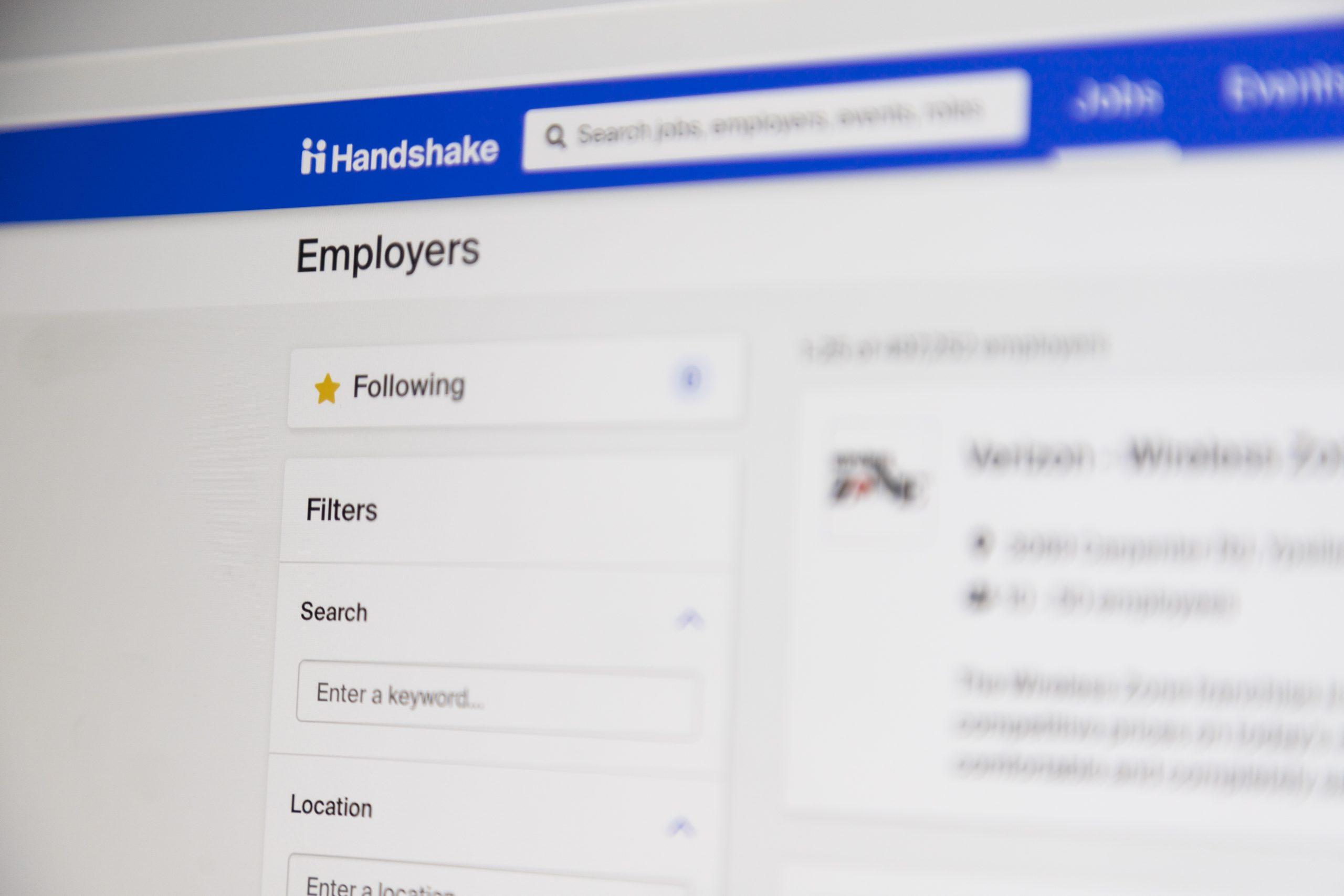Alexis Wilson ’19 started searching for employment opportunities on Handshake, an online career resource platform used by the St. Joe’s Career Development Center (CDC), after graduating in May 2019.
Wilson, along with 1800 other students and alumni, received notification that a fraudulent employer impersonating Centene Corporation under the name “Centene” viewed her profile on Jan. 16.
“This email that I got about a fraudulent employer wasn’t a surprise to me, because I had already had an experience of unreliable employers,” Wilson said. “I’m not surprised there’s a fraud trying to take advantage of college students to some degree.”
Wilson said she had an experience last year in which a company called her multiple times, asking her to come to New York for an interview. She had a feeling the employer was not reliable, so she reached out to the CDC for confirmation. Wilson said she was told the company was hiring for door-to-door sales and that the CDC would take down their job posting.
Handshake also came into question in 2018 when a student at the University of Delaware created a fake employer profile to vet the approval process herself after accepting an unpaid internship from what turned out to be a fraudulent employer. Delaware’s career services center approved the student’s fake job posting.
According to Trish Shafer, executive director of the CDC, it is unclear if the fake company under the name Centene was targeting a certain population of students.
Shafer said students’ Handshake profiles do not contain information that could compromise their security.
“Whatever information is in their profiles is what these people were able to get, and typically, that would be name, address, phone number or email,” Shafer said.
Handshake, a company founded in 2013, currently works with over 900 colleges and universities, according to Priti Khare, Handshake’s director of communications and public relations.
University career centers must approve employers before they can post jobs targeting specific schools. Handshake calculates what they call a “Trust Score” to vet employers and provide career centers with a general overview of a company’s activity on the site.
Employer Trust Scores take into account whether other universities approve or decline them, how long the employer has been on the platform, how complete their profile is, whether the employer has a valid web address and email address matching the company’s domain name and whether the employer has been flagged as fraudulent, according to Khare.
“Unauthorized account creation is very rare on Handshake—of the nearly 500,000 employers on the platform, only 0.006% (1 in every 18,000 employers) were determined to be unauthorized by our Trust and Safety team last year,” Khare wrote in an email to The Hawk.
Scott Rappaport, associate director of the CDC who oversees Handshake and other technology, noted that Handshake does not require universities to disclose occurrences like Centene Corporation’s fake profile viewing students’ profiles.
“Our decision was to be totally transparent and make sure that the students knew this was going on, fully understanding that a student might look at it and say, ‘Is this something I want to be on?’” Rappaport said.
Pam Kokkalis, associate director of employer engagement at the CDC, said their employer approval process is “rigorous,” using Handshake’s calculated Trust Score along with other factors.
“We do a physical address search to make sure the location is actually an office building,” Kokkalis said. “We go through every single employer to match up that information and confirm that they’re legitimate to the extent that we can.”
Rappaport said the benefits of having a public profile on the platform outweigh the risks, because employers can find students that way.
Emma Hughes ’21, a food marketing co-op major, found a co-op with Wakefern Food Corporation on Handshake and is currently searching for her second co-op through the platform. Hughes said fraudulent employers have reached out to her before, but she is able to apply to opportunities within her major with ease.
“It’s a great platform,” Hughes said. “Aside from those few fraudulent claims, you’re connecting with employers interested in St. Joe’s students and they’ve been somewhat vetted by the Career Development Center.”
According to Rappaport, 26% of 2018 graduates reported that they found their positions through the CDC. This percentage includes Handshake, but the CDC does not have data for the platform alone.
Shafer said she recommends that students are “educated consumers” in using Handshake, just as they would be with other platforms. Essentially, if an opportunity seems too good to be true, it probably is.
“If anything comes across [students’] desks and they’re not sure, they should call us,” Shafer said. “Forward it to us so we can investigate and research a little bit if they suspect anything at all.”
The CDC’s fraudulent posting policy and steps to follow in an incident of fraud are on Handshake for users to review.












































